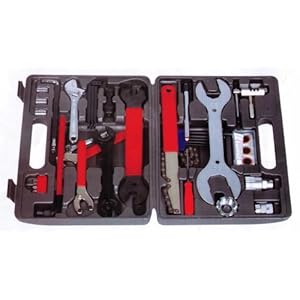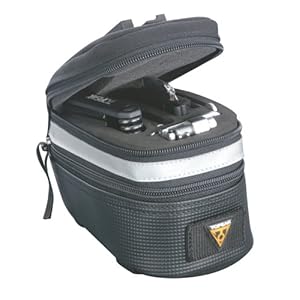Bike Survival Kit Ride Safe (The Tools Every Biker Should Have Along for the Ride)
Ride Safe (The Tools Every Biker Should Have Along for the Ride)
It’s actually quite easy to do routine maintenance on your own bike. And having the right tools for the job can mean the difference between enjoying an all-day ride and having to pack your bike up and head back home when something goes awry. So, what tools do you need to take along for the ride? First and foremost, you should have the tools to repair a flat fire. Next, invest in the tools needed to maintain your chain and brakes.
Bike Survival Kit
A more extensive bike survival kit would include:
Things to Check for Before You Hit the Road

It’s actually quite easy to do routine maintenance on your own bike. And having the right tools for the job can mean the difference between enjoying an all-day ride and having to pack your bike up and head back home when something goes awry. So, what tools do you need to take along for the ride? First and foremost, you should have the tools to repair a flat fire. Next, invest in the tools needed to maintain your chain and brakes.
Bike Survival Kit
- A basic bike survival kit should include:
- Tire patch kit
- Pump
- Chain tool
- Screwdriver
- Spare tube
- Wrenches in various sizes
A more extensive bike survival kit would include:
- Chain cleaners
- Solvents specifically designed for bike chains
- Lubrication
Things to Check for Before You Hit the Road
- Brakes: Ensuring your brakes are working well is vitally important. Make sure you check your pads often to prevent rim damage and to ensure that your bike actually stops when it is supposed to. Adjusting the tension is also important.
- Chain: Degrease the chain and re-lube it. Clean rear sprockets with a brush tool.
- Gears: Check derailleur gear action and cables. Degrease chain and re-lube. Clean rear sprockets with brush tool.
- Pedals: Make sure the axle spins freely. Check bottom bracket axles for looseness.
- Steering: Make sure handlebar and stem is tight.
- Frame: Check for damage. Make sure the seat is adjusted appropriately for your height.
- Wheels: Make sure spokes and nipples are tightened and wheels are trued.
- Check tire pressure and condition. If your suspension fork is quick release, make sure they are tightly fastened, and don’t forget to check tire pressure.





0 komentar:
Post a Comment